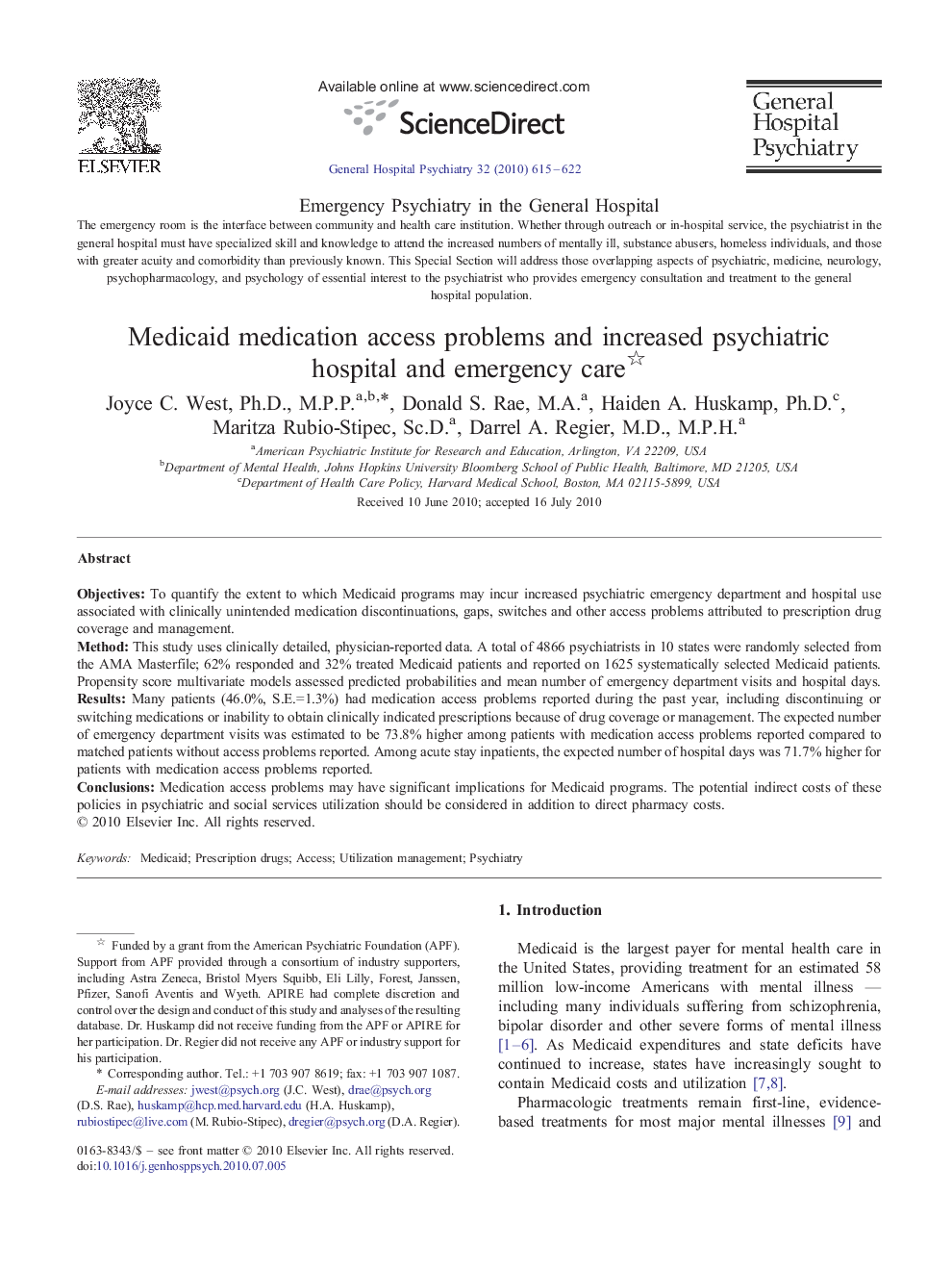| Article ID | Journal | Published Year | Pages | File Type |
|---|---|---|---|---|
| 3237892 | General Hospital Psychiatry | 2010 | 8 Pages |
ObjectivesTo quantify the extent to which Medicaid programs may incur increased psychiatric emergency department and hospital use associated with clinically unintended medication discontinuations, gaps, switches and other access problems attributed to prescription drug coverage and management.MethodThis study uses clinically detailed, physician-reported data. A total of 4866 psychiatrists in 10 states were randomly selected from the AMA Masterfile; 62% responded and 32% treated Medicaid patients and reported on 1625 systematically selected Medicaid patients. Propensity score multivariate models assessed predicted probabilities and mean number of emergency department visits and hospital days.ResultsMany patients (46.0%, S.E.=1.3%) had medication access problems reported during the past year, including discontinuing or switching medications or inability to obtain clinically indicated prescriptions because of drug coverage or management. The expected number of emergency department visits was estimated to be 73.8% higher among patients with medication access problems reported compared to matched patients without access problems reported. Among acute stay inpatients, the expected number of hospital days was 71.7% higher for patients with medication access problems reported.ConclusionsMedication access problems may have significant implications for Medicaid programs. The potential indirect costs of these policies in psychiatric and social services utilization should be considered in addition to direct pharmacy costs.
